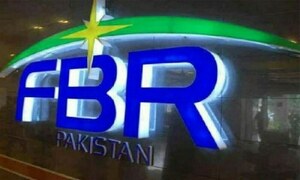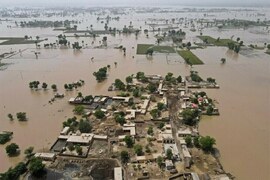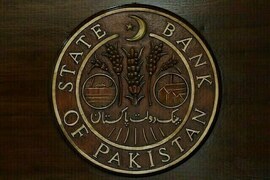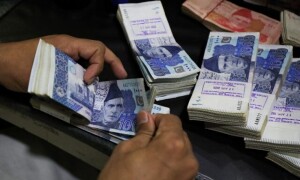A House of Representatives committee late Wednesday rejected the Bush administration's new initiative to promote democracy in Iran as it approved $71 billion in emergency funds mostly to finance the wars in Iraq and Afghanistan.
The Republican-led House Appropriations Committee granted the administration almost all of the $67 billion it wanted for the wars, and ordered that some $1.3 billion be used to upgrade armour on Army vehicles after the Pentagon was criticised for skimping on those protections for troops in Iraq.
Lawmakers also took aim at several of President George W. Bush's plans for $4.1 billion in emergency foreign aid.
The emergency spending package which totalled $91 billion also included $19.1 billion in relief for the hurricane-battered US Gulf Coast.
The committee cut most of the $75 million Bush sought for new pro-democracy efforts in Iran, calling the plan announced with fanfare last month poorly justified.
The committee instead funded existing pro-democracy programs for the country now locked in an international stand-off over its nuclear program.
Lawmakers also slashed most of the $62 million in aid the administration wanted for Afghanistan because the State Department has not declared that the Kabul government is fully co-operating with efforts to fight the country's poppy trade, which yields most of the world's heroin.
At Democrats' urging, the committee added $50 million in aid to Liberia, on top of $128 million already approved, to show support for the new president of the war-torn country, Ellen Johnson-Sirleaf, Africa's first elected woman leader.
Lawmakers also agreed to put into law a block on aid to the Palestinian Authority unless the new government being formed by the militant group Hamas renounces terrorism and recognises Israel's right to exist, backing Bush's stance. The amendment would not impede humanitarian relief to the Palestinian people, lawmakers said.
The war funds for the Pentagon would come on top of the $320 billion the White House budget office said has been allocated so far, and costs are expected to climb to around $500 billion by next year with the bulk going to Iraq.
"I believe in the end DOD (Department of Defence) will get virtually everything it asks for. It almost always does," said Rep. David Obey of Wisconsin, the committee's top Democrat and a critic of Bush's Iraq policies.
The committee's evening meeting was interrupted twice by Iraq war protesters, who were forcibly removed from the room.
The full House was scheduled to vote on the spending package next week, but the bill could get caught in a showdown with Bush over an amendment to block a Dubai company's bid to manage six US ports, a deal approved by the administration.
Shrugging off Bush's veto threat, the committee voted overwhelmingly to include the ports measure on the must-pass spending bill.
The Senate is starting work on its version of the spending package, with Defence Secretary Donald Rumsfeld and Secretary of State Condoleezza Rice slated to make their pitch for the funds to its Appropriations Committee on Thursday.
The House committee approved almost everything the Pentagon wanted in its $67 billion plan.
But in the wake of complaints that the Pentagon has been slow to field fully armoured vehicles in Iraq, the committee ordered that $850 million be used to upgrade armour on Army combat vehicles and that those be made available to National Guard forces. It also more than doubled funds the Pentagon sought for newer, safer Humvees, adding $480 million.
The committee provided $4.85 billion the Pentagon sought to train and equip Iraq's and Afghanistan's own security forces, but rejected the $1 billion it wanted for various construction projects related to force training.
BR100
15,235
Increased By
150.4 (1%)
BR30
44,824
Increased By
812 (1.85%)
KSE100
149,971
Increased By
1353.3 (0.91%)
KSE30
45,655
Increased By
407.2 (0.9%)






















Comments
Comments are closed.